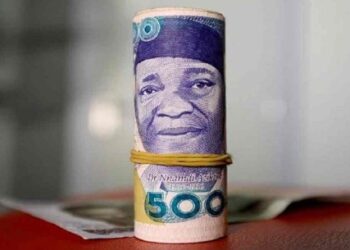“Why are people so wicked?? Why is this country like this? Is it a curse to be a small business entrepreneur? Is Dangote the only person in Nigeria who needs help?” Emma kept ranting on the other end of a phone conversation.
Emma started her confectionery business a few years selling cakes, ice cream etc. to her small community of customers. Business had been going on fine until it was time for her to expand.
Expansion meant importing some of the ice cream making equipment she needed as well as sourcing for money to finance them. Fortunately for her, funding wasn’t much of a challenge as her Angel Investors (made up of her parents and siblings) were ready to provide the needed funds. She had gotten in touch with the OEM’s and obtained a proforma invoice for the equipment she needed. All that was left was to source for the forex and get her bank to transfer the money.
At the time Emma did her financial projection for the business expansion, the exchange rate was about N280/$1 at the black market and N197/$1 at the official inter-bank market. Either way, she could still break-even at the right price. However, by the time she had secured funding and applied to get forex, the CBN had floated the naira leaving her to grapple with an exchange rate debacle of over N315. Still, the business could just about break-even at that price provided she got the forex she needed. She has been on the queue waiting to buy forex for weeks, to no avail so it’s easy to understand why she is livid. The black market which is her other alternative at N397 throws the entire economics of her expansion into losses.
Scenarios like these are not uncommon among small businesses in Nigeria. Many of them are at the receiving end of some of the failed monetary policies of the CBN, and to a large extent, the Government. Unbeknownst to a lot of small businesses and Startups, the CBN through some of its forex policies has stifled economic growth in possibly the most important sector of the economy.
Forex At Worst – The forex situation is probably the one with the most impact. You basically have no control of what it could do to your business. The CBN currently prefers to allocate forex to the manufacturing sector for them to utilize in importing raw materials. The myopic views of the government gives them the impression that by giving manufacturers preference, jobs can be created and maybe somehow Nigeria may start to export. Of course, decisions like this come at a cost, which is to the detriment of Small Business owners who are job creators by their own right. Ironically, even manufacturers are crying foul that they can’t even access the dollars.
Whilst we understand the inherent factors affecting the depreciation of the exchange rate, policy directives of the CBN has caused more harm than good to the success of small businesses.
Interest Rates – The CBN increased its benchmark monetary policy rates (MPR) from 12% to 14% claiming that “it would strongly signal not only the Bank’s commitment to price stability but also its desire to gradually achieve positive real interest rates.” This, in other words, meant that they wanted interest rates to move in line with inflation rate which had increased to 16.5%. The idea is that so long as interest rates remains below inflation rate of 16.5%, there is the risk that banks will be lending below cost. They also opined that an interest rate that does not accommodate the inflationary realities will affect the Government’s ability to borrow.
These all come at a huge cost to small businesses and manufacturing companies. Banks, a few days later, started informing customers that they were increasing lending rates from 24% to 26% per annum. This, of course, puts debt finance outside the hands of Small Businesses. The Government has now effectively crowded out the private sector.
Duties and Taxes – With the exchange rate going south, prices of goods and services have sky-rocketed. The impact of this is reflected in the drop in consumption patterns of ordinary Nigerians. To adjust, consumers now buy products in smaller quantities than they usually did. Suppliers, therefore. have inventories piling up that they can no longer sell as fast as they used to. For those who have sold, replenishing it is now a major issue. The floating of the currency has increased clearing cost by over 60% costing small businesses a lot more to finance their imports. One would expect the government to cut import duties as a tool to reduces prices of goods and services.
With State and Federal Government revenues dipping across board, cases of multiple taxation has been on the increase as states jostle to scrap up revenue via any possible means. Small Businesses are also on the receiving end of some of these actions, increasing their cost of doing business without recourse. It is as if the government is competing with businesses for revenue. A situation where small businesses see the government as competition is a pointer to an economy that has no plans of an immediate reversal of fortune.
Regulation – Nigeria currently ranks 169 in the ease of doing business report for 2016. It’s not hard to understand why this is so if you are a small business owner in Nigeria. From mere registration of business names, to obtaining licenses and tax certificates, businesses face mounting challenges that they cannot deal with. So far, we have not seen any move by the government to improve the situation. Scores of businesses are closing shops, not due to the natural effect of competition, but due to their inability to thrive under a draconian regulatory framework .
For Emma, she finds herself in a precarious situation and sadly she has no one to help her. All the taxes she has paid over the years all amount to nothing. All she wants is to eke out a living doing what she knows how to do best.























